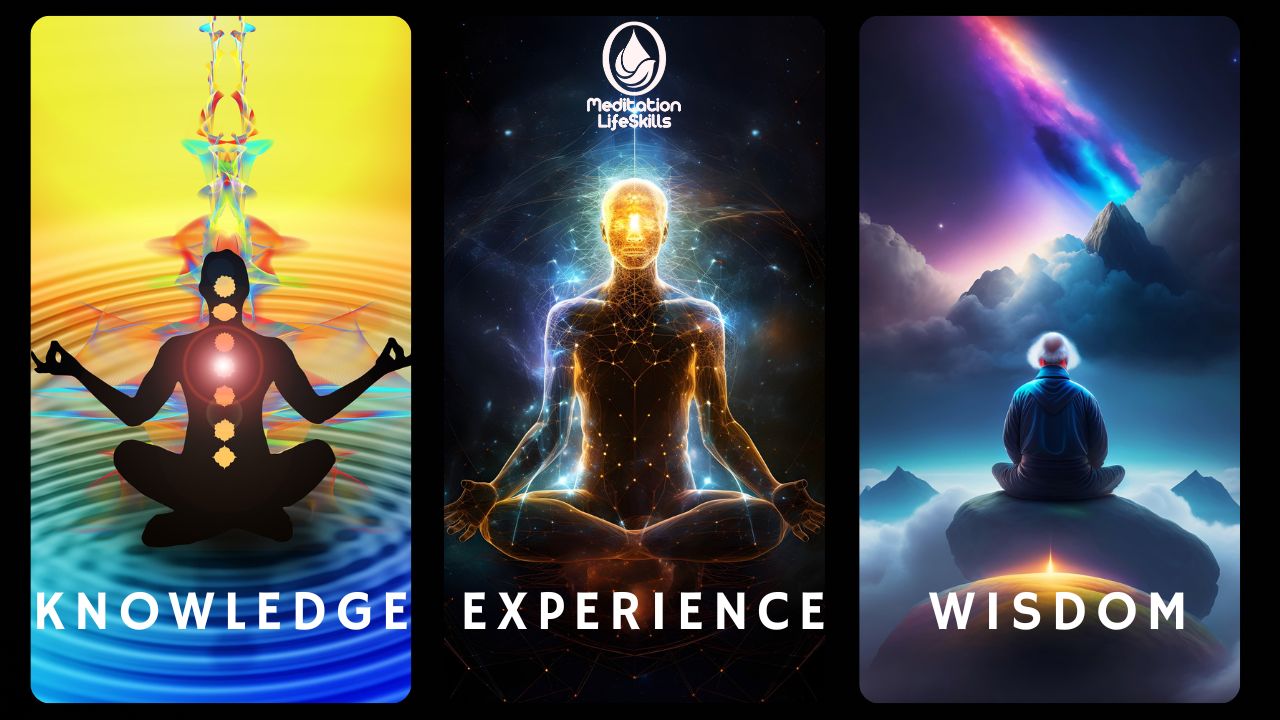
Whether you're a beginner or an experienced meditator, this guide will provide you with the tools you need to make the most of your meditation practice and achieve a deeper sense of relaxation, focus, and mental clarity.
So, get ready to take a deep breath, clear your mind, and discover how meditation can transform your life.
GET STARTED TODAY WITHOUT ANY RISK!
Get 7 Days of Unlimited Access Right Now
for Free When You Download Our App!
A life of transformation begins with action. There are seven stages of meditation instruction on a single platform. Live monthly Zoom coaching and training sessions.
Get unlimited free access to the Meditation Life Skills app for 7 days by downloading it now! Visit MeditationLifeSkills.com.
In today's fast-paced world, stress and anxiety have become a common occurrence in our daily lives.
To combat this, more and more people are turning to meditation as a way to find inner peace and balance.
But with so many different types of meditation practices and varying opinions on how long one should meditate for, it can be overwhelming to know where to start. That's why we're here to unlock the benefits of meditation and help you find the optimal length of your practice.
Benefits of regular meditation practice
Meditation is a practice that has been around for thousands of years, and for good reason. Regular meditation practice can have a host of benefits for both your mind and body.
One of the most significant benefits of meditation is that it can help reduce stress and anxiety levels. When you meditate, you're able to slow down, focus on your breath, and let go of the stress and worries that are weighing you down.
Another benefit of regular meditation practice is that it can help improve your focus and concentration. When you practice meditation, you're training your mind to stay focused on the present moment, which can help you stay more alert and attentive throughout the day.
Additionally, meditation can help improve your sleep quality, boost your immune system, and reduce symptoms of depression.
The optimal length of meditation practice
Now that we've explored some of the benefits of regular meditation practice, let's take a closer look at the optimal length of your meditation practice.
While there is no one-size-fits-all answer to this question, many experts recommend practicing meditation for at least 10-20 minutes per day. This length of time is considered to be enough to experience the benefits of meditation without feeling overwhelmed or burnt out.
However, it's worth noting that the optimal length of your meditation practice can vary depending on a number of factors, such as your level of experience, your goals for meditation, and your overall lifestyle. In the next section, we'll explore some of these factors in more detail.
Factors that can affect the optimal length of meditation practice
As we mentioned earlier, the optimal length of your meditation practice can depend on a variety of factors. One of the primary factors to consider is your level of experience with meditation.
If you're new to meditation, it's best to start with shorter sessions and gradually increase the length as you become more comfortable.
Another factor to consider is your overall lifestyle. If you have a hectic schedule and can only spare a few minutes each day for meditation, that's perfectly fine. It's better to practice for a shorter length of time consistently than to try to squeeze in a longer session once a week.
Finally, it's important to consider your goals for meditation. Are you looking to reduce stress and anxiety levels, improve your focus and concentration, or simply find a few moments of peace each day? Depending on your goals, you may want to adjust the length of your meditation practice accordingly.
How to determine the optimal length of your meditation practice
Now that we've explored some of the factors that can affect the optimal length of your meditation practice, let's take a closer look at how you can determine the right length for you.
One of the best ways to do this is to experiment with different lengths of meditation sessions and see how you feel.
Start by setting aside a few minutes each day for meditation, and gradually increase the length as you become more comfortable. Pay attention to how you feel during and after each session, and adjust the length accordingly. It's also important to be patient with yourself and not get discouraged if you're not seeing immediate results.
Meditation is a practice that takes time and dedication to master.
Different types of meditation practices and their optimal lengths
There are many different types of meditation practices, each with their own optimal length. Here are a few examples:
Breathing meditation: In this practice, you focus on your breath as you inhale and exhale. The optimal length for this type of meditation is typically 10-20 minutes per day.
Guided meditation: In guided meditation, you listen to a recording or a teacher who guides you through the meditation process. The optimal length for guided meditation can vary depending on the recording or teacher.
Mantra meditation: In this practice, you repeat a word or phrase to help focus your mind. The optimal length for mantra meditation is typically 20-30 minutes per day.
Body scan meditation: In body scan meditation, you focus on each part of your body, starting from your toes and working your way up to your head. The optimal length for body scan meditation is typically 20-30 minutes per day.
Tips for incorporating meditation into your daily routine
Now that we've explored the different types of meditation practices and their optimal lengths, let's take a look at some tips for incorporating meditation into your daily routine.
Choose a specific time each day: Whether it's first thing in the morning or right before bed, choose a specific time each day to practice meditation. This will help you establish a routine and make it easier to stick with.
Find a quiet space: Choose a quiet space where you can practice without distractions. This could be a spare room in your home, a park, or even your office.
Use a timer: Set a timer for your meditation practice to help you stay focused and avoid constantly checking the clock.
Be patient with yourself: Remember that meditation is a practice, and it takes time and dedication to master. Don't get discouraged if you're not seeing immediate results.
Common misconceptions about meditation practice length
As with any popular practice, there are often misconceptions about the optimal length of meditation practice.
Here are a few common myths:
You need to meditate for hours each day: While longer meditation sessions can be beneficial, it's not necessary to meditate for hours each day to experience the benefits of meditation.
Shorter meditation sessions are not effective: Even just a few minutes of meditation each day can be effective in reducing stress and anxiety levels and improving focus and concentration.
Meditation is a one-size-fits-all practice: The optimal length of your meditation practice can vary depending on a variety of factors, including your level of experience and your goals for meditation.
Meditation resources and apps
If you're looking for resources to help you get started with meditation, there are many apps and websites available. Some popular options include Headspace, Insight Timer, and Calm.
Conclusion
Meditation can be a powerful tool for reducing stress and anxiety levels, improving focus and concentration, and finding inner peace and balance.
While there is no one-size-fits-all answer to the optimal length of your meditation practice, experimenting with different lengths and types of meditation can help you find what works best for you.
Remember to be patient with yourself, stay consistent, and enjoy the journey.



















